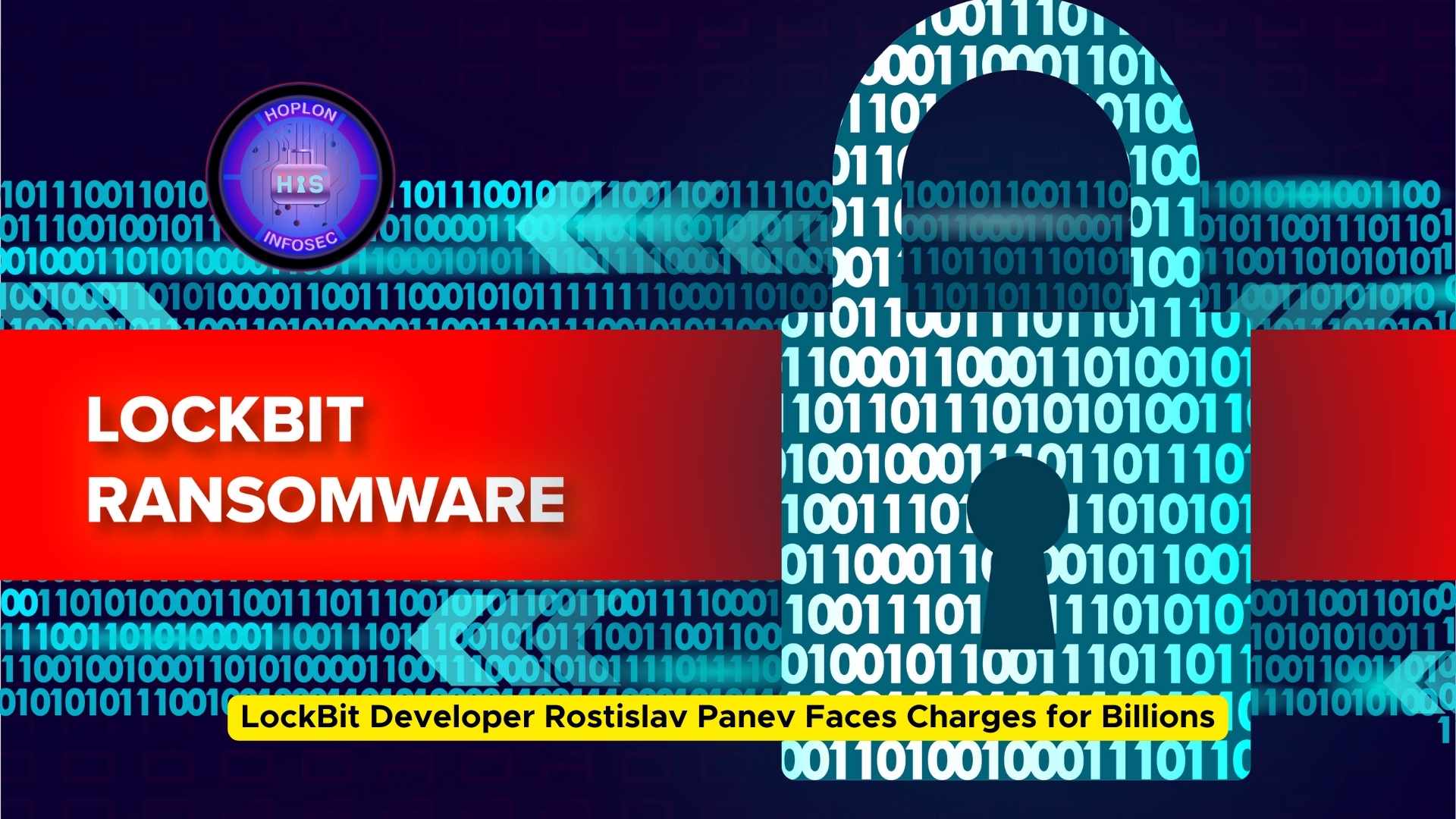In a significant blow to cybercriminal operations, a dual Russian and Israeli national has been charged in the United States for allegedly playing a pivotal role in developing and operating the LockBit ransomware-as-a-service (RaaS) since its inception in 2019. Rostislav Panev, 51, was apprehended in Israel in August 2024 and is currently awaiting extradition to the United States. This marks a significant chapter in the ongoing global effort to dismantle cybercrime syndicates.
LockBit: A Global Menace
LockBit, one of the most notorious ransomware groups in recent years, has wreaked havoc across the globe. Since its launch, the RaaS platform has targeted over 2,500 entities in at least 120 countries, including 1,800 in the U.S. alone. Its victims ranged from individuals and small businesses to multinational corporations and critical infrastructure. The group’s attacks have disrupted hospitals, schools, non-profits, government agencies, and law enforcement, amassing at least $500 million in illicit profits. This staggering figure highlights the scale of damage inflicted by ransomware operators.
Panev’s Role in LockBit’s Operations
According to the U.S. Department of Justice (DoJ), Panev’s role was instrumental in the group’s operations. Evidence collected during his arrest includes administrator credentials for a dark web repository containing multiple versions of the LockBit ransomware builder. This builder allowed affiliates to create customized malware versions for their campaigns. Additionally, Panev possessed credentials for the LockBit control panel and StealBit, a tool for exfiltrating sensitive data from compromised systems before encryption.
Panev’s contributions went beyond technical support. He admitted to Israeli authorities that he had provided coding, development, and consulting services to the LockBit group. His work included disabling antivirus software, deploying malware across victim networks, and automating the printing of ransom notes on all connected printers. For his efforts, Panev reportedly earned approximately $230,000 between June 2022 and February 2024, paid in cryptocurrency.
International Crackdown on LockBit

Panev’s arrest follows a series of high-profile takedowns targeting LockBit affiliates. In February 2024, an international law enforcement operation called Cronos seized the group’s infrastructure. To date, seven LockBit members—including key figures like Mikhail Vasiliev and Dmitry Yuryevich Khoroshev—have been charged in the U.S. These arrests represent a coordinated global effort to combat cybercrime, underscoring the importance of international collaboration in addressing transnational threats.
Despite these setbacks, the LockBit group appears undeterred. Reports indicate that they are preparing to launch LockBit 4.0 in February 2025. Whether the group can overcome the ongoing wave of arrests and operational disruptions remains to be seen.
Broader Implications for Cybercrime
The case against Panev is not an isolated incident. Other recent developments in cybercrime enforcement shed light on the broader landscape of digital threats and the efforts to counter them:
- NetWalker Ransomware Affiliate Sentenced Daniel Christian Hulea, a 30-year-old Romanian affiliate of the NetWalker ransomware operation, was sentenced to 20 years in prison in the U.S. Hulea, who was arrested in Romania in 2023, admitted to using NetWalker to extort approximately 1,595 bitcoin, valued at $21.5 million at the time. NetWalker, which targeted the healthcare sector during the COVID-19 pandemic, was dismantled in 2021 through a joint operation by U.S. and Bulgarian authorities.
- Raccoon Stealer Developer Convicted Mark Sokolovsky, a 28-year-old Ukrainian national, was sentenced to five years in federal prison for his role as the primary developer of Raccoon Stealer, a malware-as-a-service (MaaS) platform. Raccoon Stealer was used to steal sensitive data from victims, facilitating financial crimes and data sales on underground forums. Sokolovsky’s arrest and extradition from the Netherlands in 2024 marked another victory in the fight against cybercrime.
- SQL Injection and Data Theft Vitalii Antonenko, a 32-year-old from New York City, was sentenced for his involvement in a scheme to steal credit cards and personal information using SQL injection attacks. Antonenko and his accomplices laundered the proceeds through Bitcoin and traditional financial channels, targeting entities like hospitality businesses and research institutions. His arrest in 2019 and subsequent conviction highlight the diverse tactics employed by cybercriminals.
The Future of Ransomware and Cybercrime
The arrests of key figures like Panev, Hulea, and Sokolovsky demonstrate the growing effectiveness of international law enforcement collaborations. However, these victories are tempered by the adaptive nature of cybercriminals. The emergence of LockBit 4.0 and similar threats underscores the need for continued vigilance and innovation in cybersecurity strategies.
Organizations must prioritize robust security measures, including:
- Employee Training: Phishing remains a primary attack vector. Regular training can help employees recognize and avoid suspicious emails and links.
- Advanced Threat Detection: AI-driven tools can enhance an organization’s real-time ability to detect and respond to threats.
- Incident Response Plans: Preparing for potential breaches can minimize damage and ensure a swift recovery.
- Collaboration: Sharing threat intelligence among industries and law enforcement can strengthen collective defenses.
Conclusion
The case against Rostislav Panev and the broader crackdown on cybercrime represent significant milestones in the fight against digital threats. However, the evolving nature of ransomware groups and other cybercriminal enterprises necessitates a proactive, collaborative approach to cybersecurity. By staying informed and investing in advanced defenses, organizations can better protect themselves against the ever-present threat of cyberattacks.







